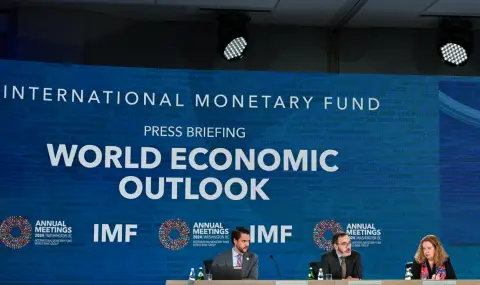The International Monetary Fund (IMF) lowered its forecast for global economic growth in 2025 by 0.1 percentage points (pp), to 3.2%. This was stated in the fund's report presented in Washington. The growth rate of the world economy in 2023 according to the IMF is 3.3%. In 2024, this figure is expected to be 3.2%. In July, the fund's specialists predicted that global economic growth in 2025 would be 3.3%.
„The last four years have become a test of the strength of the global economy. The once-in-a-century pandemic, flaring geopolitical conflicts and extreme weather events have disrupted supply chains, triggered energy and food crises and forced governments to take unprecedented measures to protect people and their livelihoods. The global economy is showing strength, but this masks uneven performance across regions and ongoing volatility, the World Economic Outlook report said.
"The sharpest contrasts are observed between countries with developed and developing economies. While the former have reached the levels of activity and inflation that were predicted before the pandemic, the latter show longer-term consequences – a significant reduction in production and sustainable inflation”, the fund's specialists note.
Risks to the global economy in the fund include a possible negative impact from monetary policy tightening, sovereign debt tensions and a larger-than-expected contraction in China's real estate sector. “Escalation of regional conflicts, especially given the growing conflict in the Middle East and the war in Ukraine, could lead to further reductions in trade, leading to steady increases in the price of food, energy and other goods,”. the fund also noted, assessing possible risks. These include the potential strengthening of protectionist policies by states and social instability.
The report notes that “in many countries, budget deficits and government debt are still higher than before the pandemic, and debt servicing costs remain high and rising.
